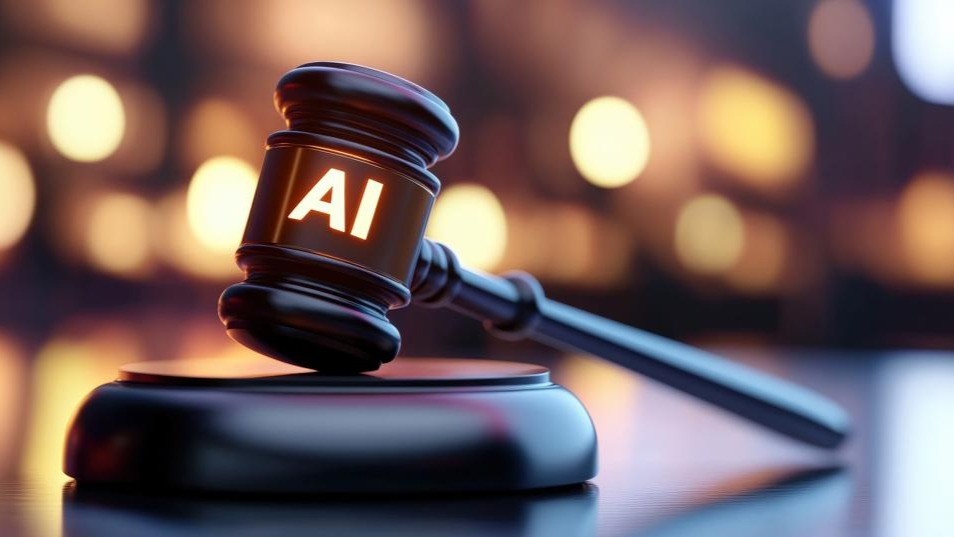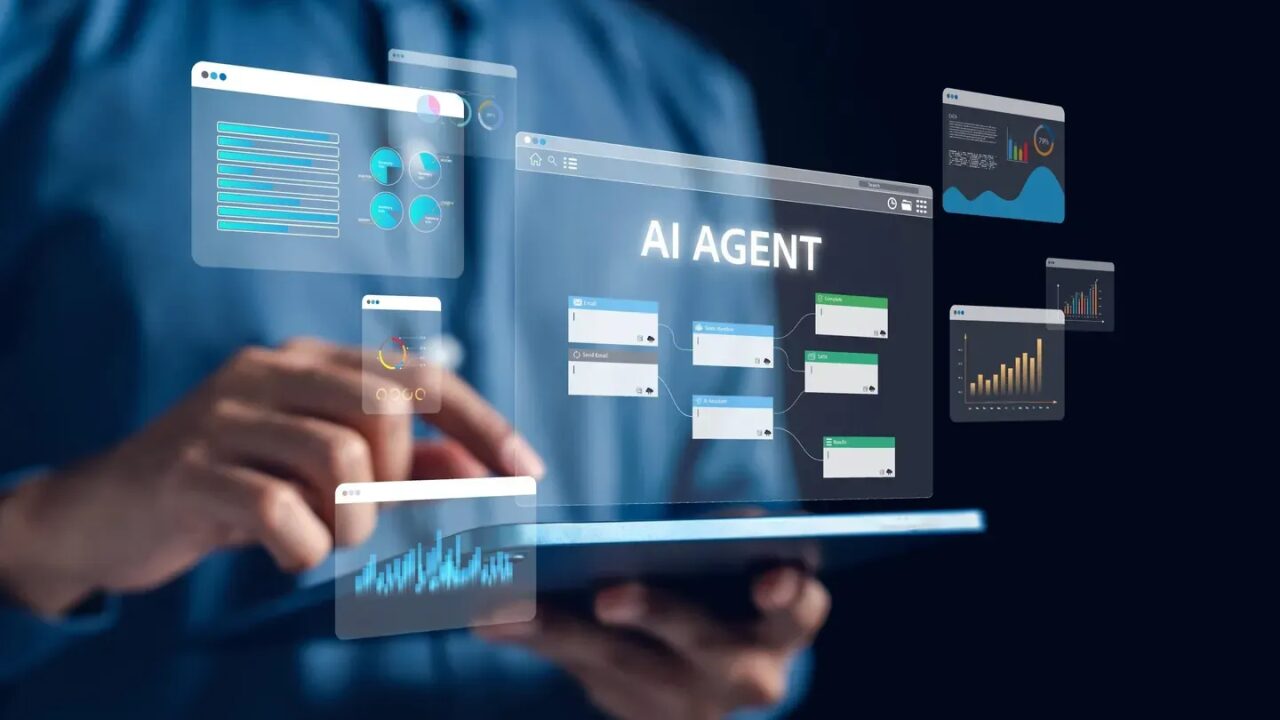8 AI Ethics Trends That Will Redefine Trust And Accountability In 2026
11 November 2025
The AI revolution isn’t driven by technological progress alone. The ethical standards and legal frameworks adopted by governments, businesses and individuals will have an equally significant influence.
Society’s role is to establish what is or isn’t acceptable, while legislators have the task of implementing and policing the rules in a way that enables innovation while mitigating the potential for harm.
This is new ground for pretty much everyone, and progress has undeniably been patchy when it comes to setting and sticking to standards. But ethical behavior and robust guardrails aren’t “nice-to-haves”; they’re essential if we’re going to successfully apply AI to solving the world’s biggest problems.
So, these are what I predict will be the biggest trends driving societal adoption of what could be the most transformative technology revolution of our lifetimes, during 2026.

The Copyright Question
If AI is trained on copyrighted human-created content, shouldn’t the creators be compensated? Many of them certainly think they should. Proposed solutions include accessible opt-outs, transparent systems allowing creators to give or remove consent, and revenue-sharing models. Court cases are ongoing and have had mixed results, with rulings this year in favor of both AI companies and artists. The hope is that in 2026, we may begin to see some clarity around this thorny issue, resulting in a fairer AI environment without putting restrictions on innovation.
Agentic Guardrails In Law
AI agents — autonomous tools capable of carrying out complex tasks with minimal human interaction — raise important questions over the extent we are willing to let machines make decisions for us. How far should they go without human oversight, and who takes responsibility when things go wrong? Without clear boundaries and guardrails, there’s a risk that their actions might not always be aligned with our best interests. We can expect topics such as autonomy thresholds to be on the agenda of legislators in 2026 as they consider the level of human oversight that should be required, and what penalties should apply when organizations allow machines to act irresponsibly.
The Impact On Jobs
It’s already clear that AI is impacting human jobs, with recruitment in entry-level administrative and clerical positions falling by a reported 35 percent. Many argue that employers have an ethical responsibility to respond to this by implementing retraining and skilling initiatives. Governments and legislators, meanwhile, will attempt to tackle the impact on workers' rights as well as mandate that money saved through AI-driven workforce cuts be spent on mitigating the societal impacts of human job losses.
Responsibility And Accountability
Who is ultimately responsible when AI makes mistakes? Is it the creators of AI tools? The humans who provided the data that AI was trained on? Or the people and organizations using the tools? At the moment, there are no clear rules. Measures on the table include mandating that organizations using AI ensure that the buck stops with a human, held accountable for harm caused by bias, hallucinations or bad decisions. Resolving this issue will be a priority for businesses and legislators in 2026.
Global Standards
AI is global and operates across borders. But regulation designed to limit the harm it can cause is down to individual countries, causing potential for mismatch and lack of accountability. The EU, China, and Indiaare among those that have introduced national AI laws, while the US is tackling it on a state-by-state basis. But these regulations vary in scope and focus. Ensuring there is international consensus and a framework to enable AI to be effectively regulated worldwide will be a hot topic over the next 12 months.
Synthetic Content, Deepfakes And Misinformation
AI enables the creation of huge amounts of content, but it isn’t always valuable or accurate, and can often be outright dangerous or harmful. Often it’s used to spread misinformation, undermine trust in democratic institutions or widen social divisions. Addressing this is a responsibility for all of us. As individuals, we will have to learn to think critically about the information we trust and share in 2026. Legislators, meanwhile, will draft laws including mandatory labeling of AI-generated content and criminalizing deepfakes intended to cause harm.
Organizational Policies And Governance
In 2026, we can expect more organizations to wake up to the dangers of unauthorized or unmonitored AI use by employees. The race to implement codes of conduct and best practice policies will be a priority for HR departments globally, while workers will be encouraged to understand principles of safe, ethical and accountable AI use. Those that don’t run the risk of increasing their vulnerability to cyber attacks, breach of copyright claims, financial penalties and perhaps most vitally, a potentially fatal loss of customer trust.
Solving AI's Black Box Problem
AI algorithms are so complex that it’s often very difficult to know for sure how they make decisions. This lack of transparency is sometimes compounded by the fact that their workings are often deliberately kept opaque to protect the commercial interests of AI providers. This makes it difficult for both users and regulators to understand if decisions are fair. Solving this problem is essential if AI is going to be used for tasks that could impact human lives, like making healthcare or financial decisions. In 2026, we can expect pressure on developers to adopt principles promoting explainable AI, and for organizations to implement methods of auditing the transparency of their AI-driven decision-making.
Ethical AI is no longer a side conversation; it is the foundation for innovation and public trust. The organizations that thrive in 2026 will be those that embed ethics and governance into every AI decision, treating transparency, accountability, and fairness as core business priorities rather than compliance checkboxes.
Related Articles
AI Agents Lead The 8 Tech Trends Transforming Enterprise In 2026
By now, “smart” versions exist of just about every home appliance, gadget and gizmos we can think of. However, manufacturers continue[...]
7 Quantum Computing Trends That Will Shape Every Industry In 2026
By now, “smart” versions exist of just about every home appliance, gadget and gizmos we can think of. However, manufacturers continue[...]
5 Business Trends Every Company Must Prepare for in 2026
By now, “smart” versions exist of just about every home appliance, gadget and gizmos we can think of. However, manufacturers continue[...]
Technology in Action: My Key Takeaways on How AI and Quantum Are Accelerating Global Transformation
By now, “smart” versions exist of just about every home appliance, gadget and gizmos we can think of. However, manufacturers continue[...]
Why The AI Supercycle Will Fail Without Advanced Networks
By now, “smart” versions exist of just about every home appliance, gadget and gizmos we can think of. However, manufacturers continue[...]
The Two-Tier AI Economy: Why Half Of Companies Are Being Left Behind And How To Close The Gap
By now, “smart” versions exist of just about every home appliance, gadget and gizmos we can think of. However, manufacturers continue[...]
Sign up to Stay in Touch!
Bernard Marr is a world-renowned futurist, influencer and thought leader in the fields of business and technology, with a passion for using technology for the good of humanity.
He is a best-selling author of over 20 books, writes a regular column for Forbes and advises and coaches many of the world’s best-known organisations.
He has a combined following of 4 million people across his social media channels and newsletters and was ranked by LinkedIn as one of the top 5 business influencers in the world.
Bernard’s latest book is ‘Generative AI in Practice’.










Social Media